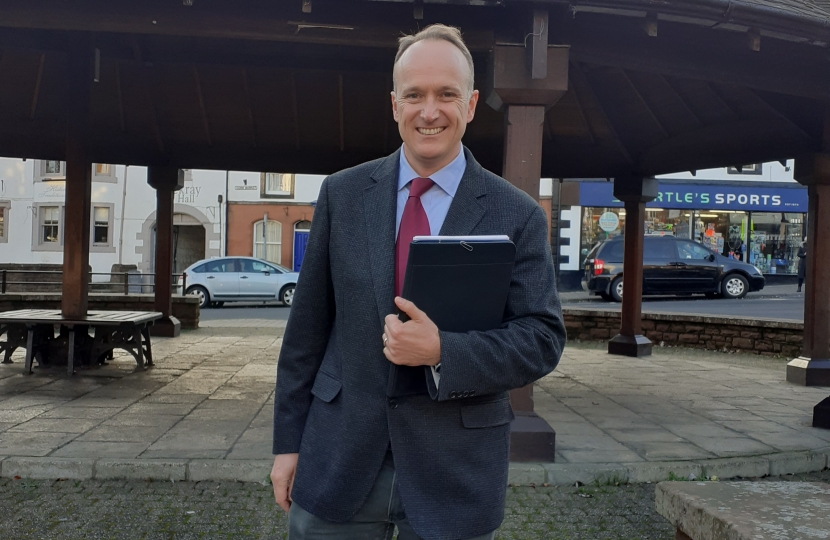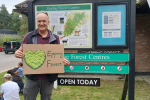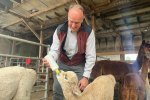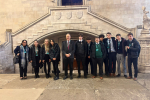
I hope all readers had a restful Christmas and a Happy New Year. Before Christmas, I voted in favour of the public health measures to try and restrict the spread of the Omicron variant. I was, and remain, convinced that it is the correct and proportionate response to mitigate the spread and protect those who are vulnerable. Our best shield against the virus is the vaccine and there has been a hugely impressive take up of people getting their booster jab over the festive period. Across all vaccine doses almost a million jabs a day were being administered in the few days before Christmas. At the time of writing 60% of eligible people over 12 years old have come forward for their booster or third Covid jab in the last three months. This is credit to the NHS but also all those who have come forward for vaccination in this great national effort. Whilst it appears that Omicron may be less severe clinically than the Delta variant, the question is what the combination of increasing hospital admissions and staff absences may do to the health service in what is traditionally a challenging period.
I am pleased that the Government has acted fast to offer financial support to the hospitality and leisure sectors which are so important to our local economy in Cumbria. This includes one-off grants of up to £6,000 per premises plus £100 million to local authorities to support other businesses. I have been a voice of support in Parliament for these sectors since the advent of the pandemic and will continue to call for targeted support going forward.
I recently used my position as a Member of the Commons EFRA Committee to trigger a wide-ranging inquiry into Rural Mental Health. This is such an important issue for our rural communities who have to deal with isolation, stressful businesses and shocks like floods and animal disease outbreaks. If we talk about and analyse the causes of these issues, we can improve the help and support that is available. I really encourage people to take part and submit evidence to our inquiry.
On EFRA I also triggered last year an Inquiry on Movement of Animals Across Borders. The Government has now responded to our formal report. I and the rest of the Committee were disappointed in their response. Our report made many sensible and pragmatic recommendations in the areas of pets, farm animals and horses. It is so frustrating that the Government’s formal response pushed these important issues into the long grass with yet more consultation. I urge the Government to act now and make these changes quickly so we can stamp out horrendous practices like ear cropping in dogs, puppy smuggling, smuggling of heavily pregnant dogs and the illicit movement of countless numbers of horses in poor conditions for slaughter. We must act now as we have a duty of care to the animals we look after and to protect the nation’s biosecurity.
In my last column I wrote about the ongoing crisis facing the pig sector. In an urgent session of EFRA in December, I questioned the Home Office Minister about the Government’s actions in the face of the labour crisis facing the food and farming sectors. I raised the human and animal welfare crisis that we are facing, with already thousands of pigs having been culled on farm because there isn’t the meat processing workforce in place to handle the supply. The Home Office Minister’s responses were deeply disappointing and inadequate. I urge the Government to get a grip and act quickly to avert this avoidable crisis facing our farming sector.
In Chamber of the Commons last month, I called on the Government to close a loophole on Public Sector Food Buying Rules in order to uphold high animal welfare and food production standards. The importance of sustainable and ethical public sector food procurement has been highlighted by the pandemic. Unfortunately, the Government Buying Standards for food and catering services currently still provide an exemption for meeting high animal welfare and food production standards if it would increase costs. We cannot simultaneously keep high standards whilst compromising those standards in certain cases. We should be very proud of our high animal welfare and food production standards that our fantastic UK farmers uphold. We can be a beacon to the world on these standards and it is important we set that example in procurement at home as well as in our international agreements.
Finally, in Parliament I asked the Church of England’s representative in the Commons about support for our small rural churches that face unique challenges. Rural churches are at the heart of our rural communities and it is encouraging that the Church of England is looking at new and innovative ways of supporting them going forward.







